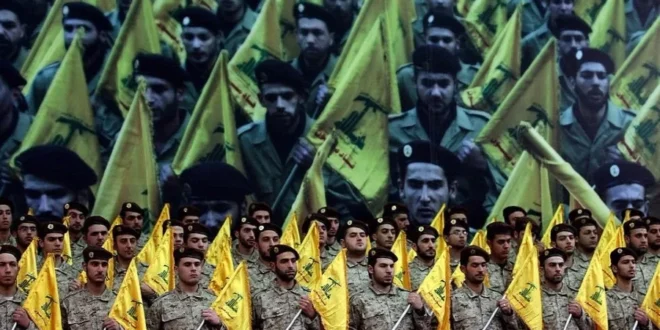Hezbollah has declared that any Israeli attacks on civilians will be met with retaliation. This statement follows an Israeli strike near a funeral procession for a Hezbollah fighter in the Lebanese town of Aita al-Shaab. The strike damaged a building close to the funeral but did not cause any casualties.
The Israel-Lebanon border has experienced frequent fire exchanges, primarily involving the Israeli army and Hezbollah, an ally of Hamas, since the Gaza Strip conflict began on October 7. On Monday evening, Hezbollah announced they had fired rockets at the Israeli town of Kiryat Shmona in retaliation for the Israeli attack during the funeral in Aita al-Shaab, emphasizing their stance that any civilian harm would be reciprocated.
Lebanon’s National News Agency reported that the Israeli strike targeted attendees at the funeral of Hezbollah fighter Hassan Srour in Aita al-Shaab. Despite the proximity of the strike to the funeral procession and its intent to intimidate mourners, the ceremony continued.
An AFP correspondent reported that the strike hit an uninhabited building and that artillery shells also fell near another funeral procession for a Hezbollah fighter in Beit Leef.
Following these incidents, Hezbollah claimed to have targeted two launchpads from Israel’s Iron Dome air defense system. The war in Gaza, which started with a significant attack by Hamas on Israel on October 7, has led to over 19,450 deaths in Gaza and raised concerns about a regional conflict.
More than 130 people have been killed in Lebanon due to Israeli strikes, predominantly Hezbollah fighters but also including a Lebanese soldier and 17 civilians, among them three journalists. Hezbollah recently confirmed the deaths of three of its members but did not specify the circumstances.
On the Israeli side, the conflict has resulted in the deaths of four civilians and seven soldiers. Hezbollah, which is backed by Iran, claims to be supporting Hamas, while residents in southern Lebanon report intensified Israeli bombardments.
French Foreign Minister Catherine Colonna has been actively engaging with officials in Beirut and Israel, as well as the occupied West Bank, in efforts to de-escalate the border situation.


